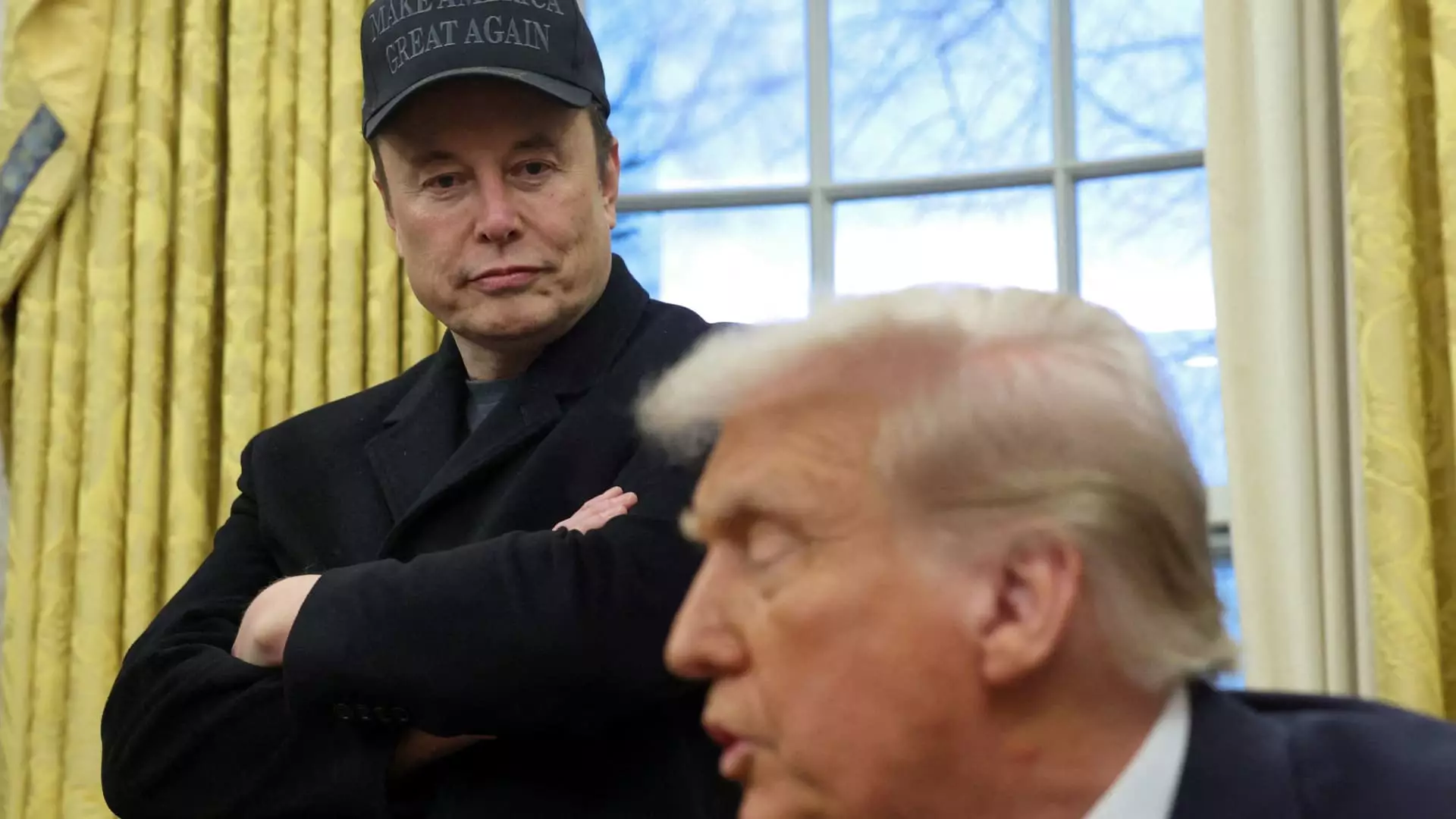In recent years, the landscape of social media has transformed significantly, primarily due to the emergence of conservative-oriented platforms like Trump Media and Rumble. These companies not only offer a voice to their constituents but also underscore ongoing tensions surrounding censorship, digital governance, and the vitality of free speech in the digital age. A recent legal development involving Trump Media, Rumble, and Brazil’s Supreme Court has thrust these issues into the spotlight, igniting debates over the boundaries of free expression and international jurisdiction.
On a noteworthy Wednesday, a lawsuit was initiated in a Florida federal court, targeting Justice Alexandre de Moraes, a figure central to a controversial confrontation with technology mogul Elon Musk. Moraes gained prominence after instituting measures that led to the suspension of Musk’s social media platform, known as X, within Brazilian borders. The lawsuit alleges that Moraes attempted to unlawfully suppress a prominent Rumble user whose politically charged rhetoric clashed with the justice’s interpretations of acceptable online discourse.
This legal action brings forth a critical argument for the right to free speech and its implications for American companies operating in a global context. Trump’s Media and Rumble assert that Moraes’s “Gag Orders” threaten not only Rumble’s operations but also the functioning of Truth Social, another platform tethered to Rumble’s infrastructure. Therefore, if Rumble falters, Truth Social’s capacity to provide a platform for discussion would also diminish.
This lawsuit does not exist in isolation; it coincides with severe political turmoil in Brazil, particularly following allegations against former President Jair Bolsonaro. Bolsonaro faces scrutiny, with charges related to an alleged coup attempt as he sought to prolong his presidency after losing the 2022 election. His connection to Trump, who invited Bolsonaro to his inauguration, has further entwined these global political narratives, connecting the rise of American conservative social media with Brazilian political strife.
The intertwining of these issues raises questions about how social media platforms can influence political landscapes globally. As conservative voices align across borders, the collective narrative regarding what constitutes acceptable discourse becomes profoundly influential—and also contentious.
The core of the lawsuit centers around an existential question: To what length should foreign judicial orders reach in limiting free expression on platforms based in another country? Trump Media’s CEO, Devin Nunes, emphasizes this stance, arguing that **the essence of the company** lies in its commitment to uphold free expression—especially in light of attempts to impose international constraints on American digital platforms.
Nunes’s remarks resonate within a broader dialogue about the power dynamics between nations and technology companies. As platforms increasingly serve as arenas for political dialogue, the need for clear guidelines around governance and accountability grows paramount. The case highlights both the fragility and the strength of digital platforms; they can simultaneously empower speech while becoming battlegrounds for broader ideological conflicts.
This ongoing legal confrontation is not merely a fight for operational governance but also a significant financial issue. Trump Media has noted its legal expenses in navigating these turbulent waters, demonstrating how corporate interests are often intertwined with political and legal battles. The company’s assertion that significant portions of its operating funds are devoted to litigation underscores the costs associated with defending its mission.
Moreover, the reference to the protracted merger with a special purpose acquisition company (SPAC) as being hindered by the Biden-era SEC illustrates the complexities involved in maneuvering through both regulatory and legal landscapes. As a new entity working to carve its niche in the media landscape, Trump Media’s ability to navigate these challenges will profoundly impact its future viability and reach.
The upcoming proceedings not only promise to shape the direction of Trump Media and Rumble but may also set precedents that could influence how tech companies engage internationally over issues of speech and censorship. As this legal battle unfolds, stakeholders will keenly observe how far judicial reach can extend and the implications of such decisions for platforms dedicated to fostering political discourse in an increasingly polarized world. Whether this entails a constraining of speech or an affirmation of digital freedom remains to be seen—yet it is clear that the interplay between technology, politics, and law will remain central to the ongoing debates about rights and responsibilities in the modern age.

